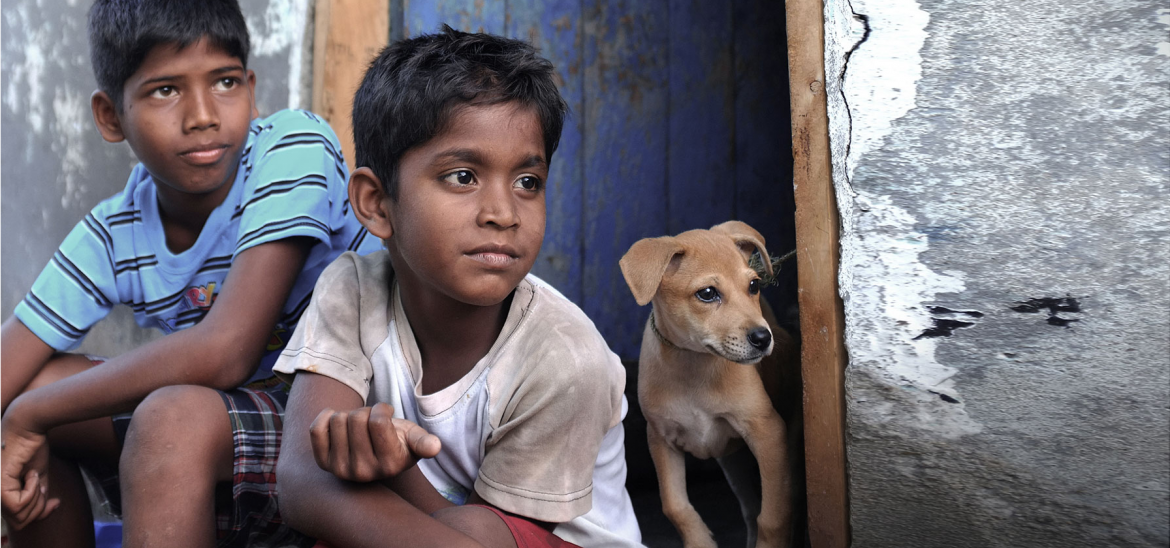Into Film Clubs
Find out everything you need to know about starting an Into Film Club.



With our new Kaakka Muttai: Inequality on Film resource now live, Oxfam's Education & Youth Advisor John McLaverty writes about his experience of using film to educate young people about globalisation and inequality at our special Oxfam screenings at past Into Film Festival, and recounts his own fond memories of using film in the classroom.
The Crows Eggs is an engaging film for learners on the concepts on globalisation and inequality. An excellent learning tool using media in the geography classroom.
A teacher's review of our Kaakka Muttai: Inequality on Film Resource on TES
Long before I joined Oxfam I taught a Caribbean history course. One invaluable resource was Euzhan Palcy's feature film Rue Cases Negres (Black Shack Alley). Set in the cane fields of Martinique during the 1930s, the film encouraged students to explore and question issues such as racism, colonialism, power, culture and identity through film. It brought history sharply into focus and right back to life. The film even reminded - and sometimes surprised - my north London students that not everyone in the Caribbean speaks English. It's also incredibly moving and entertaining with a fabulous soundtrack.
Fast forward 20 years to Oxfam, where I found, surprisingly, that our Global Citizenship Education programme doesn't have a strong track record of using feature films as a window on our increasingly complex and globalised world. Oxfam has organised projects encouraging young people to produce their own films, and our learning resources have creatively addressed media literacy and the critical reading of photographs and images. However, we've kept the feature film at arms length. Maybe we just haven't trusted Hollywood to tell the right stories.
However, in 2013 I took the plunge and accepted Into Film's invitation to host screenings of Beasts of the Southern Wild, Benh Zeitlin's vision of a climate apocalypse seen through the eyes and fertile imagination of 9-year old Oscar® nominee Quvenzhané Wallis. I wanted our young audiences to enjoy a great film, but also to think critically about the impacts of climate change on ordinary people, and the global efforts to mitigate it. Climate change can appear a remote and technical topic. I wanted the film to humanise it and arouse our audience's curiosity and sense of wonder.
The screenings went well and were followed by stimulating discussion and debate - something harder to facilitate than you might imagine, in a popcorn strewn cinema. At the end of the Festival I was convinced that this shouldn't be a one-off experiment, but something that Oxfam should do regularly.
At subsequent Into Film Festivals, Oxfam has hosted successful and well-received screenings of I Am Kalam, Sur le cheminde l'école (On The Way To School) and Kaakka Muttai (The Crow's Egg). Through these screenings, we've used compelling stories and the power of the moving image to explore complex questions around issues such as inequality, educational opportunity and globalisation. In addition, we've written online resources supporting Oxfam's Youth Ambassador Groups to organise their own screenings of the films in school, under the auspices of Into Film Clubs. We hope this approach helps to develop the organisational and teamwork skills of our young campaigners, along with growing the audiences for great films and making more young people aware of Oxfam's issues.
Kaakka Muttai (The Crow's Egg) is our most recent collaboration with Into Film. Directed in Tamil by M. Manikandan, the film makes a pointed but oblique critique of the impact of globalisation and growing inequality in India. It does this through the story of two young brothers who become obsessed with tasting pizza from a restaurant that's opened across the highway from the slum where they live. As with all the films we've featured, it explores challenging issues from a child's eye view, and in a completely un-polemical way.
Now Into Film has written the learning resource Kaakka Muttai: Inequality on Film to further encourage teachers to use feature films to critically explore global issues. I highly recommend this resource, which combines an accessible media studies approach with a clear focus on the issues raised by the film. For me, it feels as if those long distant Friday afternoon screenings of Rue Cases Negres have come full cycle - only now they have the full support of Oxfam Education and Into Film behind them.
We cannot guarantee that all films discussed in this article are covered by the PVSL and are part of our catalogue, but where possible we aim to ensure that this is the case.
A series of articles that highlight how the medium of film can be used to teach a wide variety of subjects and themes.
View other Articles in this columnViewing 4 of 4 related items.

Find out more about our streaming service, designed specifically for UK schools.